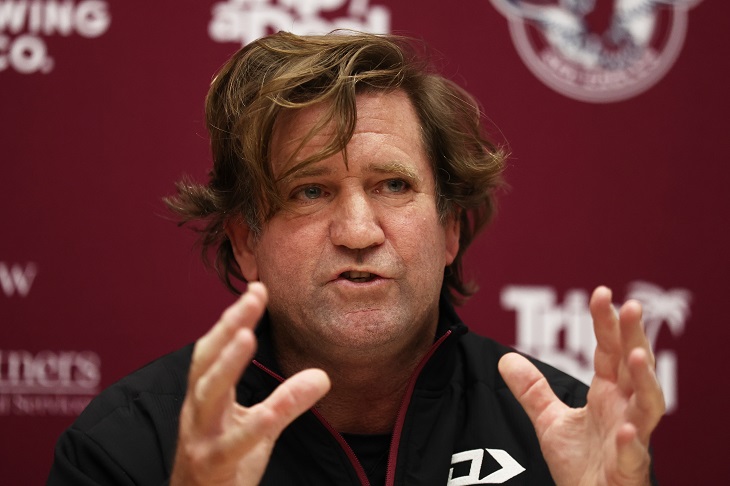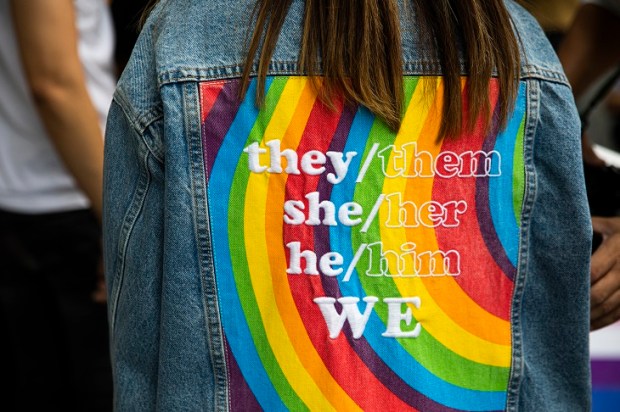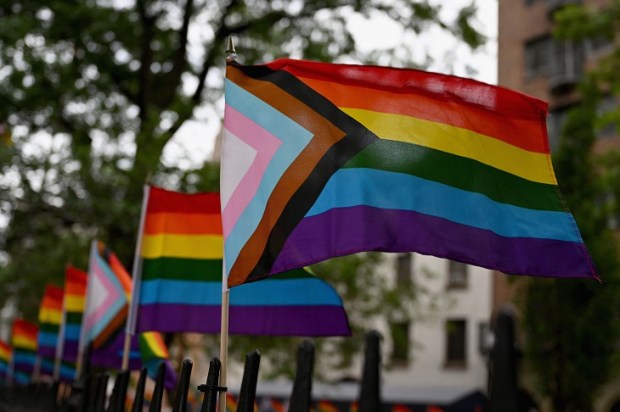‘It’ll be an inclusion game,’ they said. ‘It’ll celebrate diversity,’ they promised.
And so it was.
Except that the Manly Sea Eagles forgot to include their players when they planned it. And they assumed uniformity of thought among the playing group when they announced it.
The rugby league team bosses have been so busy congratulating themselves on their upcoming diversity pageant that they never noticed the diversity within their dressing room.
Half the team are committed Christians, holding to a biblical view of sexuality. Who knew? Not the doyens of diversity at club headquarters who assumed everyone thought alike.
Why couldn’t the players who thought differently just get on board with the program so that the club could go ahead and promote its willingness to embrace difference?
The last thing club management want when trying to showcase their love of diversity is an assortment of beliefs.
A solution is at hand, though.
The club could choose, because of their commitment to inclusion and diversity, to stick with their traditional jumper. That would allow the entire team, in all its diversity, to be included in the game.
But not so fast.
How – without forcing other people to run around in rainbow jerseys under threat of being sidelined from the sport they love – would the suits in head office show off their virtuous commitment to inclusion and diversity?
It quickly became clear that the club could only demonstrate inclusion by excluding half their players.
And so they did.
Those who thought differently found themselves culled from the group, leaving the Manly Sea Eagles in a position to show off their diversity.
It was a tough sell. But coach Des Hasler did his best.
His ten minute address to journalists – during which he used the words ‘diversity’ and ‘inclusion’ six times each, along with generous sprinklings of ‘tolerance’, eight apologises, and a quote from Gandhi no less – seemed to do the trick.
As long as you didn’t think of the excluded players being excluded, Manly stood for inclusion.
And as long as you ignored the players not able to take the field because of their religious beliefs, rugby league was for absolutely everybody.
Look! A rainbow!
Meanwhile, police were warning the exiled Christian players to stay away from the game that was for absolutely everybody because of fears for their safety.
According to news reports:
‘There were even fears protesters angry at the players’ stance could attempt to enter the ground and harass the seven stars. It was unanimously agreed the players would be told to stay at home.’
Just imagine if Manly wasn’t an inclusive club!
National Rugby League boss Peter V’landys told journalists that he respected the beliefs of Christian players.
But then he went on to caricature those beliefs:
‘If you don’t want to be inclusive and you don’t recognise that we’re all human beings and we’re all the same, well you have the right to stand down and not play.’
So a inclusion and diversity round at the football boils down to this; it doesn’t matter how you actually behave toward other people, if you fail to wear the prescribed rainbow jumper promoting all things LGBTQ+ then you are guilty of inhumanity toward your fellow man.
Imagine how the seven players – sheltering in their homes from angry fans demanding they ditch their Christian principles in order to prove how inclusive everyone else is – must have felt hearing that.
We celebrate diversity unless your diversity differs from the uniformity of popular culture in which case we condemn your diversity as bigotry because we were never really after diversity in the first place.
Can’t you just feel the inclusion?
But worse, this was not the kind of diversity Manly officials had in mind when they planned their diversity parade against the Sydney Roosters.
To borrow a line from George Orwell’s Animal Farm: LBGTQ+ diversity good. Christian diversity bad.
It seemed the Christian players didn’t want to promote homosexuality and transgenderism and whatever it was that the + represented.
To be clear, the Christian players weren’t objecting to playing alongside LGBTQ+ people, they just didn’t want to wear the rainbow – a Christian symbol of hope now culturally appropriated by the LGBTQ+ movement.
And so Manly’s demonstration of diversity is now threatened by a handful of independent thinkers.
You can follow James on Twitter. You can order his new book Notes from Woketopia here.
Got something to add? Join the discussion and comment below.
Get 10 issues for just $10
Subscribe to The Spectator Australia today for the next 10 magazine issues, plus full online access, for just $10.


























Comments
Don't miss out
Join the conversation with other Spectator Australia readers. Subscribe to leave a comment.
SUBSCRIBEAlready a subscriber? Log in